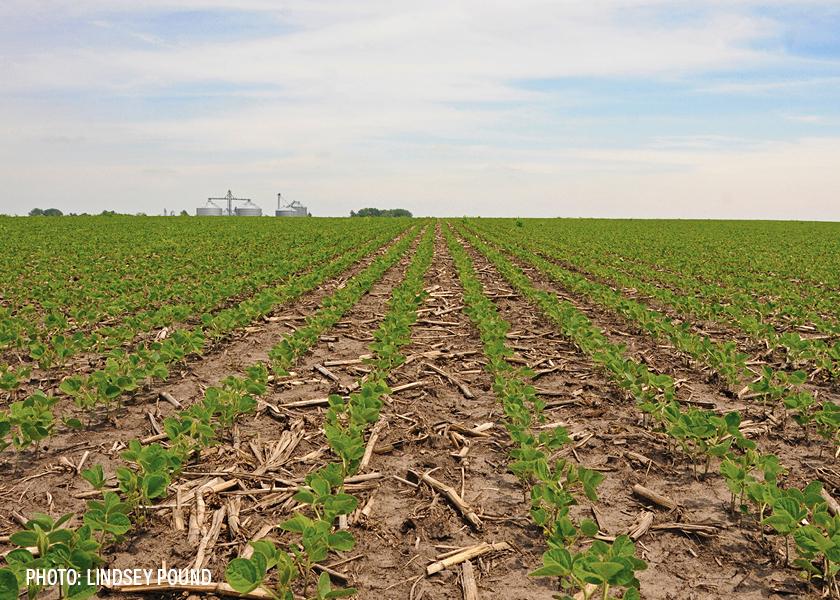Court Rules Dicamba ‘Was Unlawfully Approved’ By EPA and Halts Use

A federal court determined on Tuesday that the U.S. Environmental Protection Agency (EPA) unlawfully approved dicamba for use over the top of emerged soybeans and cotton crops designed to withstand the herbicide.
The ruling by the U.S. District Court of Arizona in Tucson yesterday vacates the 2020 registrations for Monsanto (now Bayer) XtendiMax, BASF Engenia and Syngenta Tavium. EPA has not said when it will respond to the court's decision. The ruling, for now, means U.S. farmers will not be able to use dicamba for weed control this season.
The Decision And Its Timing Questioned
In response to the court’s decision, BASF said in a formal statement, “Most soybean and cotton farmers have made seed and chemistry purchase decisions and, in some cases, are preparing to plant their 2024 crop in the coming weeks. As a result, this Order may threaten the livelihoods of soybean and cotton farmers who rely on over-the-top dicamba to control resistant weeds.”
BASF added that 40 million U.S. dicamba-tolerant soybean and cotton acres "will be directly impacted" by the court order.
In announcing its decision, the U.S. District Court of Arizona acknowledged dicamba as an effective herbicide, but said “its toxicity is not limited to weeds; it kills broadleaf plants, generally, including desirable plants, bushes, and trees. Dicamba easily moves off-field due to wind drift during spraying and is volatile, meaning it evaporates into a gas during spraying if there is a temperature inversion or even hot weather can cause it to vaporize after spraying."
The Agricultural Retailers Association (ARA) said in a statement it disagrees with the court's decision. "It removes a determination that should be made by a science-based regulatory agency to a federal court, and the timing of the decision will be extremely disruptive to ag retailers, distributors, manufacturers and farmers who made plans to use these products in 2024," said Daren Coppock, president and CEO of ARA.
Coppock added: "People have different opinions about whether OTT dicamba should be registered and used. But surely we can agree that we’re all better off – including consumers and the environment – if these decisions are made by regulators with scientific expertise during the registration review process rather than by the federal courts or activist litigators which lack that expertise."
'A Sweeping Victory'
Four organizations led the charge in court, challenging the EPA on its decision to register – and maintain the registration of – dicamba. They include: the Center for Food Safety, Center for Biological Diversity, Pesticide Action Network, and the National Family Farm Coalition. The Center for Biological Diversity deemed the court decision “a sweeping victory for family farmers and dozens of endangered plants and animals.”
In response to the court decision, Bayer said the court “…vacated the EPA’s registrations for over-the-top dicamba products based on procedural grounds, finding that the EPA ‘did not follow the FIFRA notice and comment provisions’ when it issued the registrations. We respectfully disagree with the ruling against the EPA’s registration decision, and we are assessing our next steps. We also await direction from the EPA on important actions it may take in response to the ruling. Our top priority is making sure growers have the approved products and support they need to safely and successfully grow their crops. We will keep our customers updated as we learn more from the EPA in advance of the 2024 growing season.”
ARA's Coppock is encouraging EPA and the registrants to continue the defense of science-based pesticide regulation in the federal courts by appealing the decision and requesting a stay of the decision during the appeal. "Flexibility in emergency labels and cancelation orders will be necessary to minimize chaos and economic harm in the supply chain to retailers, distributors and the farmers whom they serve," he noted.
EPA: Despite Stricter Rules, Thousands of Complaints of Dicamba Damage
Complaints Weigh on Future of Dicamba
Over-The-Top Dicamba Cutoff Dates For 2023 Are Set







